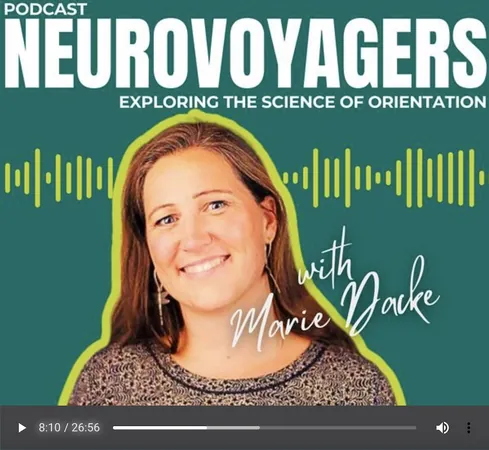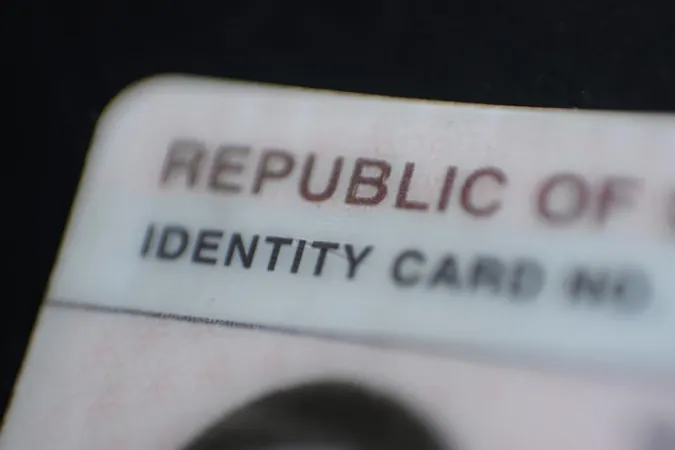
Discovering the Stars: How Dung Beetles Navigate Like Astronauts
2024-12-21
Author: Rajesh
Introduction
In a captivating exploration of nature's little wonders, Professor Marie Dacke from Lund University recently shared her groundbreaking research on dung beetles and their remarkable navigational abilities. In a podcast episode titled "Guided by the Stars: The Fascinating World of Dung Beetles and Navigation," hosted by The Max Planck Institute for Neurobiology of Behavior, Dacke reveals the incredible secret these tiny creatures use to find their way home: the Milky Way.
Dacke’s Journey
But who would have thought that such a mundane insect could capture the attention of the scientific community? Dacke's journey to becoming a biologist was driven by a profound curiosity about the natural world. Sharing the joy of collaborating with colleagues, she highlights how teamwork has played a crucial role in their discoveries.
The Ig Nobel Prize
The revelation that dung beetles can navigate using the stars is not just a scientific novelty. In 2013, this discovery earned Dacke and her esteemed colleagues – Emily Baird, Marcus Byrne, Clarke Scholtz, and Eric J. Warrant – the prestigious Ig Nobel Prize in a unique dual category of biology and astronomy. This was the first and only time that the award has been given for these interconnected fields.
Practical Implications
What makes this discovery even more exciting is the practical implications for understanding navigation in other species. The study, "Dung Beetles Use the Milky Way for Orientation," published in Current Biology, sheds light on how animals, and potentially humans, can utilize natural cues for orientation.
Aftermath of Winning
Dacke also recounts the amusing and unexpected consequences of winning the Ig Nobel Prize. While often seen as a satirical counterpart to the Nobel Prize, the Ig Nobel celebration showcases the quirky side of science, leading to a unique wave of public interest and media coverage around their research.
Conclusion
As dung beetles continue to inspire new avenues of research, Professor Marie Dacke's work serves as a reminder of the wonders of the natural world and the hidden complexities of even the smallest creatures. Their exceptional ability to navigate using the stars offers insights that could have far-reaching implications in fields like ecology, biology, and even space exploration. Stay tuned for more incredible revelations about the fascinating lives of dung beetles!




 Brasil (PT)
Brasil (PT)
 Canada (EN)
Canada (EN)
 Chile (ES)
Chile (ES)
 España (ES)
España (ES)
 France (FR)
France (FR)
 Hong Kong (EN)
Hong Kong (EN)
 Italia (IT)
Italia (IT)
 日本 (JA)
日本 (JA)
 Magyarország (HU)
Magyarország (HU)
 Norge (NO)
Norge (NO)
 Polska (PL)
Polska (PL)
 Schweiz (DE)
Schweiz (DE)
 Singapore (EN)
Singapore (EN)
 Sverige (SV)
Sverige (SV)
 Suomi (FI)
Suomi (FI)
 Türkiye (TR)
Türkiye (TR)